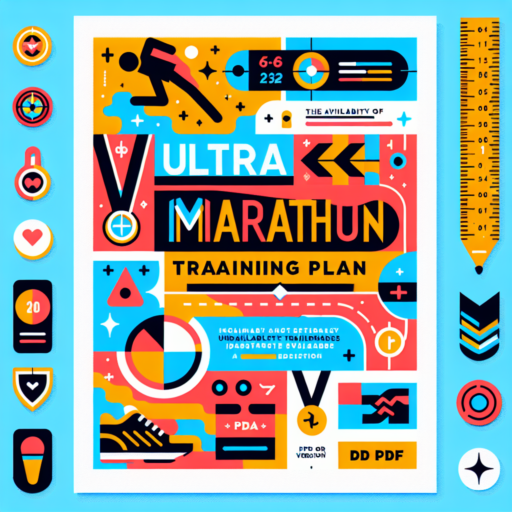How to prepare for a 50k trail run?
Preparing for a 50k trail run requires commitment, strategic planning, and understanding the unique challenges this distance presents. Whether you're tackling rugged terrain or facing unpredictable weather, your preparation will be the key to crossing the finish line.
Develop a Training Plan
To succeed in a 50k trail run, it's crucial to have a structured training plan tailored to your fitness level and running experience. Begin by gradually increasing your weekly mileage, focusing on back-to-back long runs to simulate the fatigue you'll experience on race day. Incorporate hill workouts and trail runs into your regimen to build strength and agility, necessary for navigating the elevations and technical sections you may encounter.
Nutrition and Hydration Strategies
Understanding and practicing your nutrition and hydration is indispensable for a 50k endeavor. Start experimenting with different food and fluid intake during your long runs to find what best suits your body. Focusing on carbohydrates to fuel your runs and integrating electrolyte replacement will help you maintain energy levels and prevent dehydration and cramping.
No se han encontrado productos.
How many miles should I run to train for a 50k?
Training for a 50k ultramarathon requires a strategic approach, both in terms of mileage and the allocation of training efforts. The key to successful training lies not only in the total number of miles but also in how those miles are distributed over the course of your training program. While individual needs and fitness levels vary significantly, a general guideline is to gradually build up to weekly mileages that peak around 40 to 50 miles.
It’s essential to incorporate a mix of long runs, recovery runs, and speed work into your training plan. Long runs are crucial for building endurance, and they should gradually increase in distance, leading up to runs of at least 20 to 30 miles. However, equally important are recovery days and lighter weeks to allow your body to adapt and recover, preventing injury and burnout.
Ultimately, the focus should be on the quality of your runs rather than the sheer quantity of miles. Consistency over the weeks with a balanced approach to training, including rest and cross-training, can be more beneficial than hitting a specific mileage goal. Listen to your body and adjust your training as needed to ensure a safe and effective build-up to race day.
Can you train for a 50k in 12 weeks?
Embarking on the challenge of a 50k race demands not only a great deal of endurance but also a well-thought-out training plan, especially if you’re considering a prep time of only 12 weeks. This timeframe is tight, suggesting an already established base level of fitness is crucial. Assuming you’re starting from a decent level of running fitness, it’s possible, but it requires dedication, smart planning, and listening closely to your body to avoid injury.
Structuring your training carefully is key to success. Ideally, your 12-week plan will blend long runs, which gradually increase in distance, with recovery days to allow your muscles to heal and strengthen. Incorporating speed work and hill repeats can also be very beneficial, improving your endurance and power, which are vital for tackling a 50k race. Balancing these elements while progressively increasing your mileage is a delicate dance, yet entirely achievable with discipline.
Nutrition and hydration strategies also play a pivotal role in your training regime. Consuming a balanced diet rich in carbohydrates, proteins, and fats, along with staying well-hydrated, will fuel your long runs and aid in recovery. Given the demanding nature of a 50k, experimenting with during-run nutrition and hydration can be beneficial to figure out what works best for you, ensuring you can sustain your energy levels throughout the race.
Can I train for 50k in 6 weeks?
Embarking on a journey to complete a 50k ultramarathon requires not only physical endurance but also mental preparation and a thoughtfully crafted training plan. The question of whether one can prepare for such a demanding challenge in just 6 weeks is one that many aspiring ultramarathon runners ponder. While it’s not the ideal timeframe for all athletes, certain strategies can make this goal more attainable.
Firstly, the foundation of your running experience plays a crucial role in this accelerated preparation period. Runners who already have a solid base of long-distance running may find adapting to the rigorous demands of a 50k training schedule within 6 weeks more feasible. Utilizing intense interval training and back-to-back long runs can significantly enhance your endurance and stamina, crucial for the uneven terrains and prolonged exertion of ultramarathons.
Additionally, incorporating a comprehensive cross-training regime is vital for avoiding injuries and improving overall strength and flexibility. Activities like cycling, swimming, and strength training can complement your running routine, offering the much-needed respite for your running muscles while still boosting cardiovascular health. This approach ensures your body is well-rounded and prepared for the multifaceted challenges of a 50k run.
Beyond the physical preparation, the mental aspect of tackling such a distance cannot be understated. Setting realistic goals, visualizing the race, and maintaining a positive yet adaptable mindset are key factors that can significantly influence your success. Engaging in mental preparation techniques, such as meditation and visualization, can equip you with the resilience needed to endure the highs and lows of ultramarathon training and racing.




